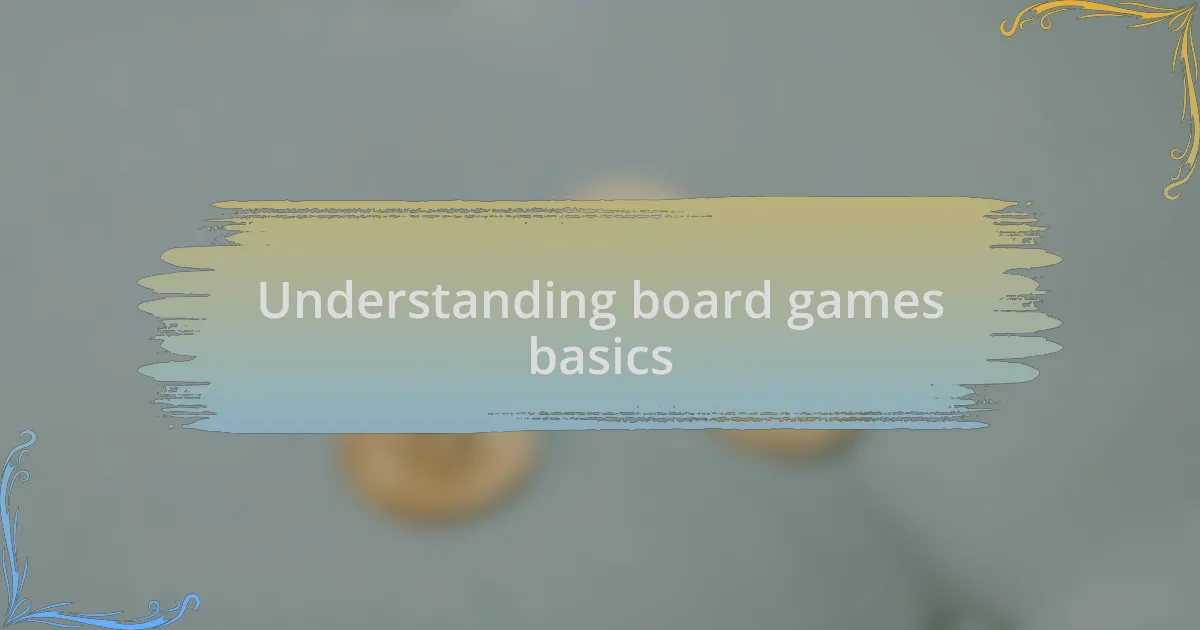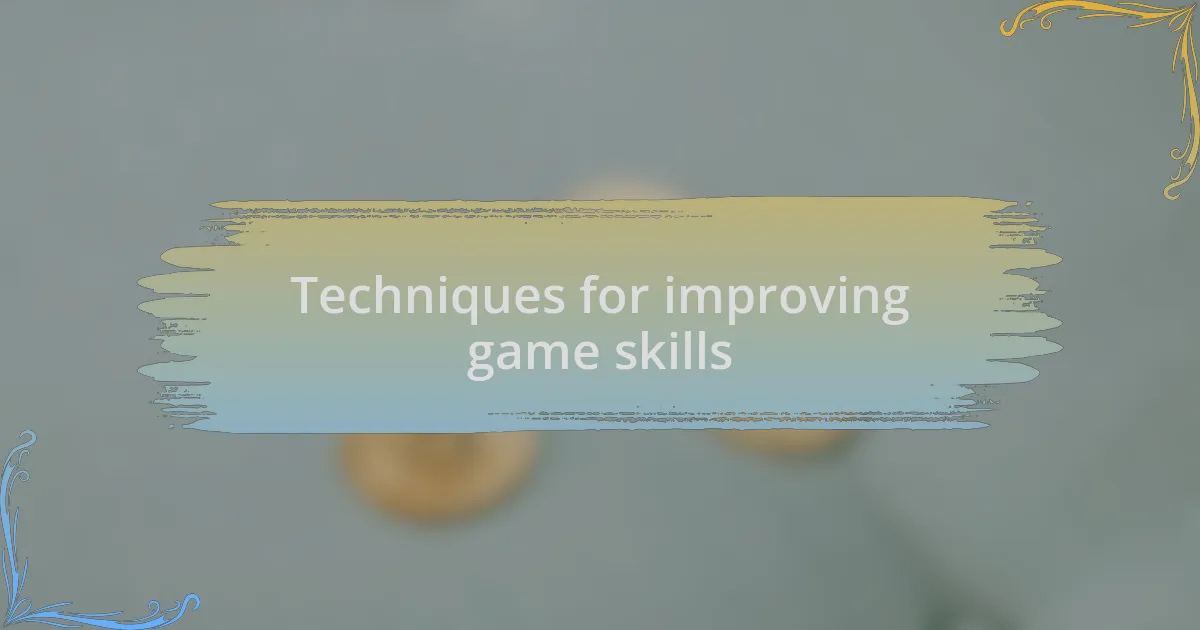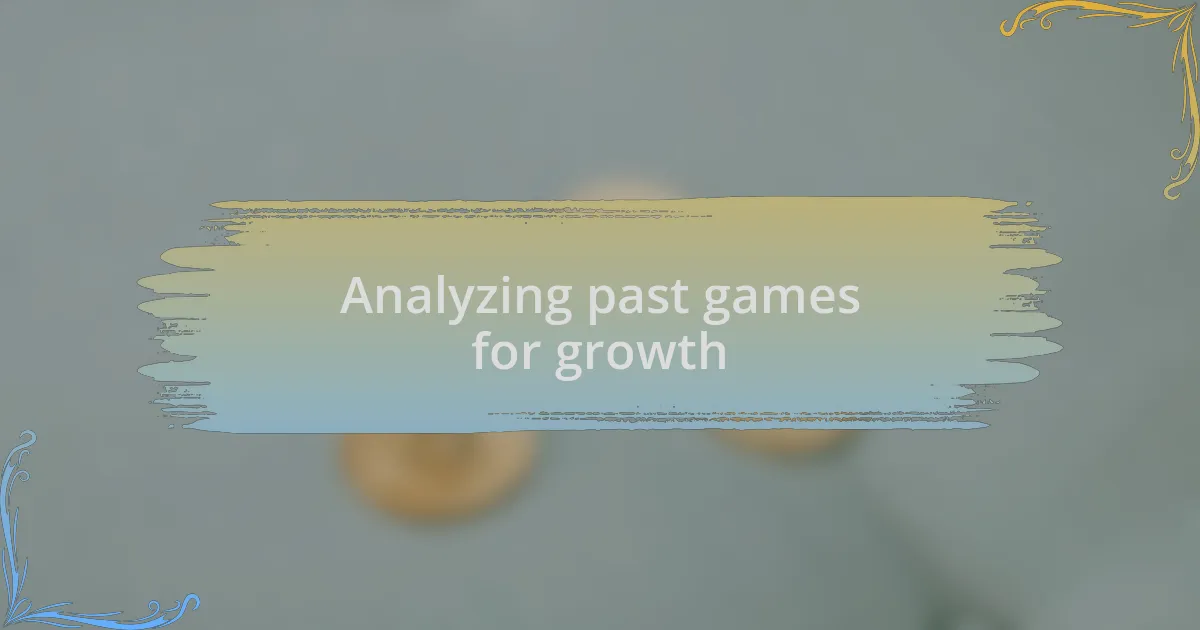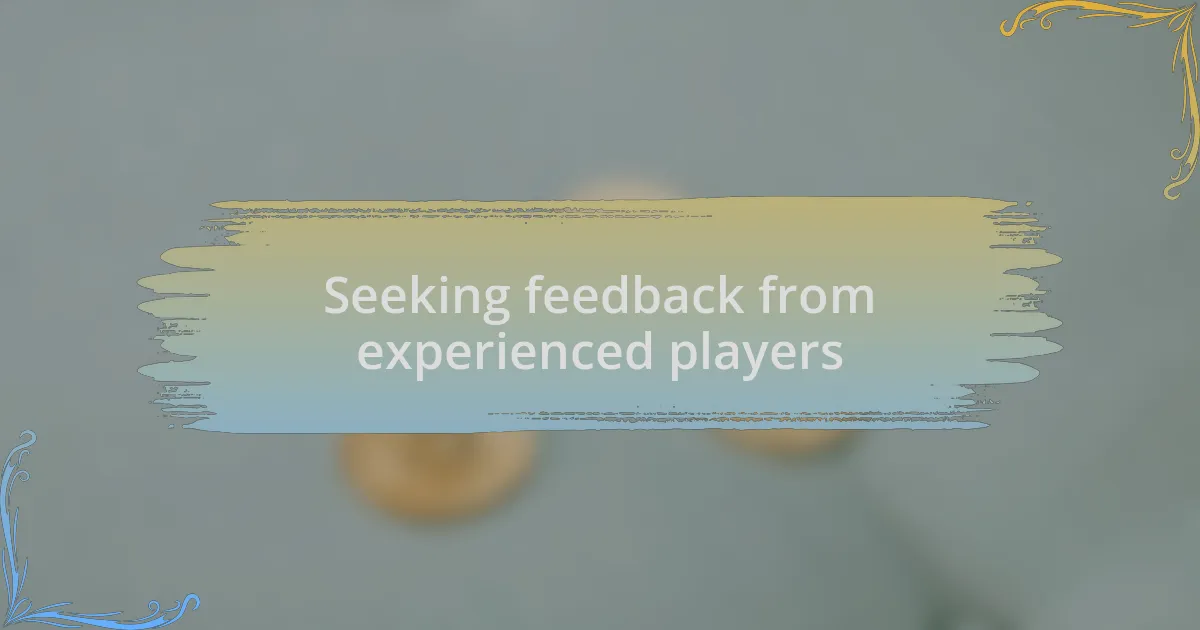Key takeaways:
- Understanding board games involves mastering components like rules, types of games, and gameplay dynamics.
- Improving game skills can be achieved through diverse play experiences, gameplay analysis, and utilizing online platforms for practice.
- Reflecting on past games fosters growth by enabling players to learn from mistakes and adapt strategies.
- Seeking feedback from experienced players enhances gameplay through valuable insights and encourages strategic depth.

Understanding board games basics
Understanding board games begins with grasping the basic components that make them tick. Each game typically consists of a board, pieces, cards, and rules. For example, I remember the first time I opened a game box with my friends; the excitement of setting things up brought back memories of family game nights. It’s fascinating how these elements interact to create a unique experience for players.
Rules can feel overwhelming initially, but they are the backbone of any game. Have you ever found yourself confused by a set of rules? I certainly have! What helped me was taking the time to read through the rules slowly and even watching tutorial videos. The satisfaction of finally understanding the mechanics of a game is incredibly rewarding.
Lastly, understanding the different types of board games—strategy, cooperative, and party games—can change how you approach playing. I’ve often switched my style depending on the game type. For instance, in strategy games, I’ve learned to be more patient and analytical, while party games allow for spontaneity and laughter. Isn’t it amazing how these variations can influence not only the gameplay but also the dynamics among friends?

Techniques for improving game skills
One technique I found invaluable for improving my game skills is practicing regularly with a mix of different players. I used to think that playing with the same group was beneficial, but I soon realized that diversifying my opponents exposed me to new strategies and perspectives. Have you ever played with someone who thought completely differently than you? It made me rethink my tactics and adapt in ways I hadn’t previously considered.
Another effective approach was to analyze my gameplay after each session. I remember the first time I jotted down key moments from a game, reflecting on what worked and what didn’t. It was eye-opening! By identifying my weaknesses—like getting overly aggressive too early—I learned to adjust my strategy in future games. Have you tried keeping a game journal? It can be a game-changer!
Lastly, I discovered the power of online platforms that simulate board games. I still remember my first few games online; I felt overwhelmed at first. However, these platforms not only allowed me to practice at my own pace but also introduced me to a global community of players with varying skill levels. This experience emphasized that improvement often comes from engaging with a larger player base, making each game session a valuable learning opportunity.

Analyzing past games for growth
Reflecting on past games has been a cornerstone of my development as a board gamer. I recall one memorable match where my strategy fell flat. Looking back, I realized I was too focused on winning rather than understanding my opponent’s moves. Have you ever had a game where you felt completely outmaneuvered? Analyzing that experience helped me see the value in patience and foresight.
In another instance, I found myself grappling with a clever tactic from a friend—one that I hadn’t encountered before. When I examined that game, I realized my weakness was not adapting quickly enough. It struck me how important it is to not only track my own performance but also to catalog the strategies that throw me off my game. This reflection not only enhances my skill set but transforms each setback into a learning opportunity.
Looking back, I often find myself amazed at how much insight I gain from these reflections. It’s like piecing together a puzzle; every game adds new dimensions to my understanding. Have you ever reflected on your losses and felt a sense of growth? By acknowledging my mistakes, I’ve cultivated resilience and adaptability, both essential traits for improving my board game prowess.

Seeking feedback from experienced players
Seeking feedback from experienced players has been a game-changer for me. I remember after a particularly frustrating session, I reached out to a player who consistently outperformed me. Their insights about my over-aggressive play style made me realize that sometimes, less is more. Have you ever asked someone for feedback and found exactly what you needed to hear?
There was a time when I was hesitant to seek opinions, thinking it might expose my weaknesses. However, when I finally did, I was struck by how generous experienced players were with their advice. One player suggested I focus on the strengths of my chosen game character instead of spreading my strategy too thin. Their encouragement opened my eyes to strategic depth I hadn’t noticed before, deepening my appreciation for the game. Doesn’t it feel validating when someone acknowledges your potential?
In group settings, I’ve found that discussing game strategies can spark new ideas. I once played a complex strategy game with a passionate group, and after the match, we gathered around to share our thoughts. One player recommended specific tactics that I hadn’t considered, and the excitement in the air was palpable. This exchange not only strengthened my bonds with fellow gamers but also enriched my understanding of the game itself. Have you ever found that sharing experiences with others enhances your gameplay?